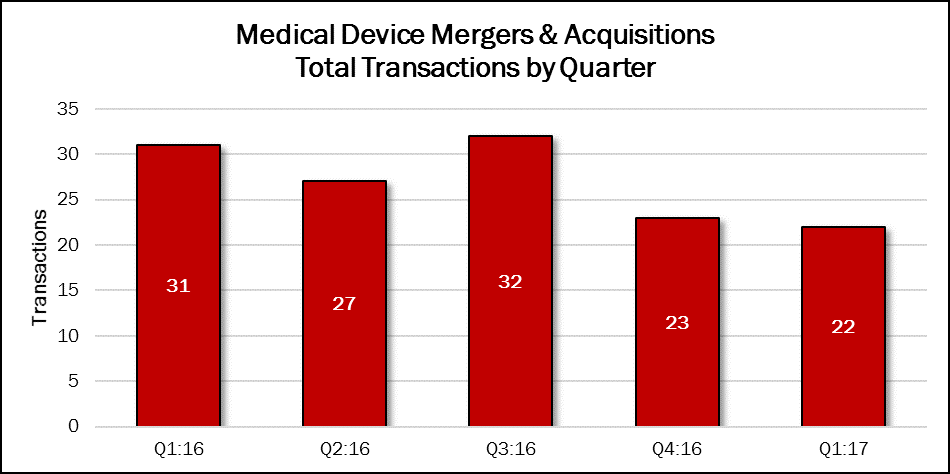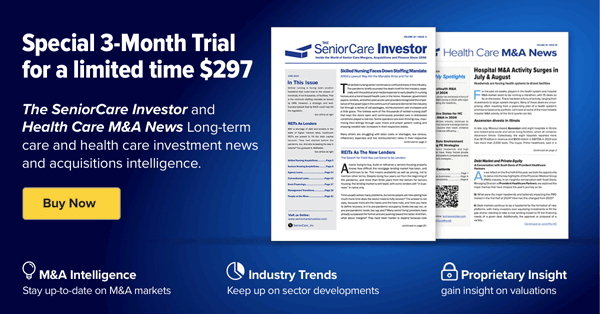Deal volume in the Medical Device sector stagnated in early 2017, dropping 4% to 22 transactions in the first quarter. Deal volume was also down 29%, compared with Q1:16. This quarter accounted for 21% of the 104 deals announced in the previous 12 months.
The excise tax that was introduced through the Affordable Care Act in January 2013 was suspended temporarily in December 2015. Now, medical device makers are hoping the tax will be rescinded completely with whatever bill Republicans pass to replace the ACA. The permanent repeal would brighten the outlook for startups and venture capitalists, and could lead to more innovation (and M&A) in the future.
 Source: HealthCareMandA.com, April 2017
Source: HealthCareMandA.com, April 2017
Spending levels remained healthy, however. Nine deals disclosed a price, for a total of nearly $6.2 billion. That figure represents a 13% increase over the previous quarter, but a 47% decrease compared with the same quarter the year before. The first quarter accounted for 11% of the $56.1 billion spent in the previous 12 months.
Dollars Spent on Medical Device Mergers & Acquisitions, by Quarter
|
Q1:16 |
Q2:16 | Q3:16 | Q4:16 |
Q1:17 |
| $11,718,473,000 | $38,547,884,000 | $5,918,113,996 | $5,447,508,208 | $6,178,889,614 |
Body contouring is estimated to be a $4 billion global market, and Allergan plc just jumped into it. The company acquired publicly traded ZELTIQ® Aesthetics for nearly $2.5 billion, to enhance its global medical aesthetics portfolio. ZELTIQ’s flagship CoolSculpting system is FDA-cleared to affect appearance through lipolysis or reduction of unwanted fat using a patented cooling technology.
Aesthetics also drove the second largest deal for a medical device company. Hologic Inc., which develops, manufactures and sells diagnostic products, medical imaging systems and surgical products, agreed to pay approximately $1.6 billion for Cynosure, Inc., which makes and markets aesthetic treatment systems for plastic surgeons. Its portfolio consists of more than 20 products, including non-invasive body contouring and women’s health.
KRG Capital Partners broke up its portfolio company, Vention Medical Inc., and sold it in parts. One of those parts, the Advanced Technologies division, went to Nordson Corporation for $705 million. The division designs and manufactures minimally invasive interventional delivery devices, catheters and advanced components.

